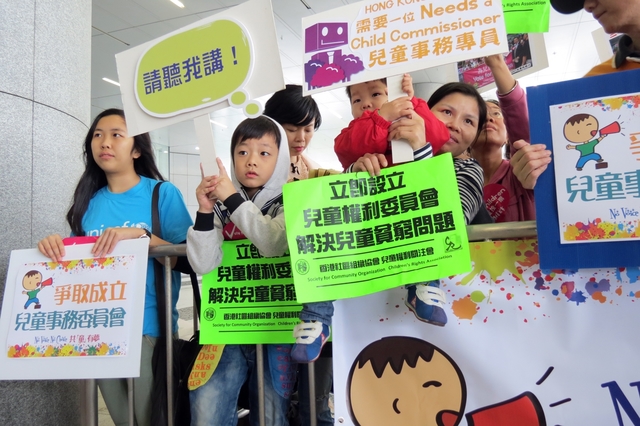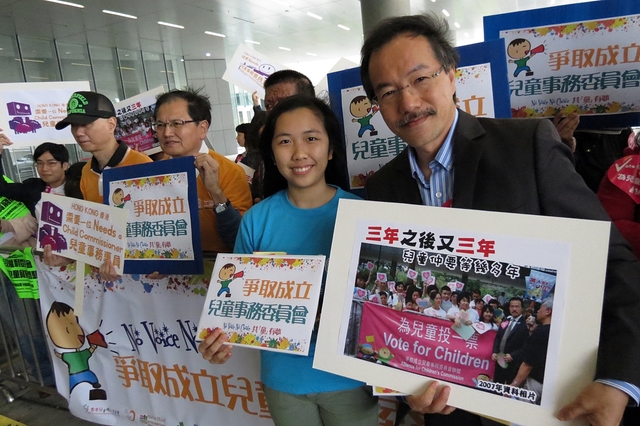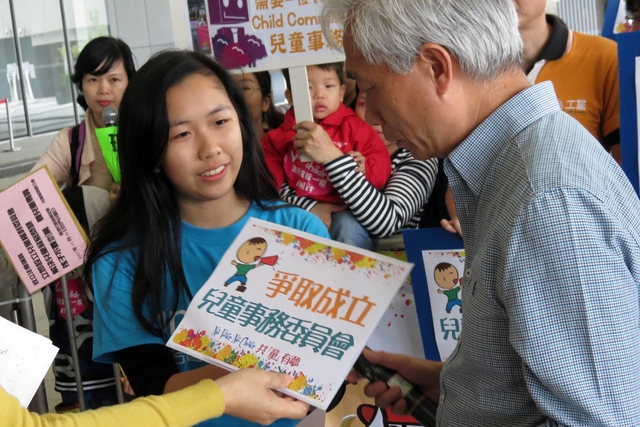UNICEF HK welcomes a motion urging the Government to set up Children's Commission passed to end Universal Children's Day
2013-11-20


|
HONG KONG, 20 November 2013 —Hong Kong Committee for UNICEF (UNICEF HK) welcomes a motion urging the Government to set up a Children’s Commission, moved by Legislator Fernando Cheung Chiu-hung in the Legislative Council Meeting, passed unanimously today, a day that marks the adoption of the United Nations Convention on the Rights of the Child in 1989. Children’s Commission has been advocated by both local and international authorities over the past decade. The same motion, moved by Fernando Cheung Chiu-hung, was unanimously passed in 2007 in the Legislative Council Meeting. Internationally, in 2005, the UN Committee on the Rights of the Child (the Committee) regretted the absence of an independent national human rights institution with a specific mandate for child rights in “concluding observations”, an advice after reviewing the periodic report submitted by the Government. In October this year, upon reviewing the second submitted report, the Committee questioned in the concluding observations why Hong Kong Government has not taken step to establish Children’s Commission, despite the motion was passed by the Legislative Council in June 2007. However, the Government is reluctant to set up Children’s Commission despite continuous call by all, claiming that Family Council is taking up the roles of protecting the well-being of children and all Bureaux are monitoring and implementing children’s policies in Hong Kong. “We are glad to hear the loud voice from Legislative Councilors to stand up for Hong Kong children today by voting for the establishment of Children’s Commission in Hong Kong. We shall continue to take a united front to promote this internationally proven approach to safeguard the healthy development of children and provide long-term benefits to the community,” said Irene Chan, Chief Executive of UNICEF HK. |
| “We sincerely hope that the Government will act immediately to establish this long-delayed Children’s Commission in Hong Kong so that the best interests of the child can be more appropriately integrated and consistently applied in all legislative, administrative and judicial frameworks that will impact children positively. This is the best way to tackle numerous children’s issues outlined in the concluding observations. We should not disappoint our children anymore.” Globally, over 70 countries and 200 regions including United Kingdom, Norway, Costa Rica, New Zealand, Denmark, Russia, have set up Children’s Commission or Ombudsman. Hong Kong have set up commissions for specific age groups or vulnerable groups, such as Elderly Commission in 1997, Women’s Commission in 2001, Commission on Youth in 1990, Equal Opportunities Commission in 1996. |

|









